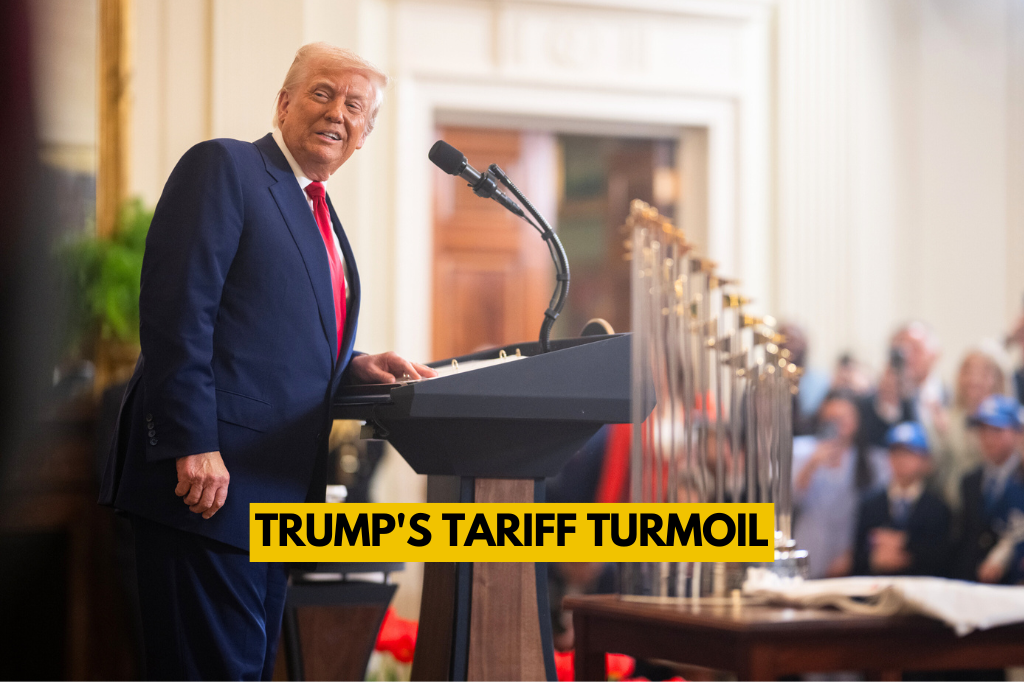US President Donald Trump stated that he would not pause his tariff agenda, which has caused global markets to drop, fueled concerns about a worldwide recession, and led several countries to call for negotiations. However, the US President suggested that he might be open to talks that align with his domestic economic goals.
This statement came after the White House rejected reports suggesting the administration was considering a 90-day suspension of its reciprocal tariff plan for all target nations, except China.
The initial report caused financial markets to recover more than 3 per cent from a 4 per cent loss on April 7, but they fell again after the administration clarified its position. A 10 per cent tariff on imports from all countries is already in effect, and targeted reciprocal tariffs are set to begin on Wednesday, April 9.
“We’re not looking at that,” Trump said during a meeting with Israeli Prime Minister Benjamin Netanyahu, the first foreign leader to visit the White House after the president’s tariff announcement. The Republican president emphasized that tariffs, which are likely to remain, are a “very important” part of his economic agenda and signaled his willingness to secure a “fair deal and good deals with every country.”
“There can be permanent tariffs, and there can also be negotiations because there are things that we need beyond tariffs,” Trump continued. He avoided questions about whether countries could reduce their tariffs below the flat 10 per cent rate and reiterated, “Tariffs will make this country very rich.”
In discussing his stance on the European Union (EU), Trump reiterated his belief that the bloc’s offer to lower tariffs on cars and industrial goods to zero was insufficient. He also expressed ongoing concern about the US’s bilateral trade deficit with the EU.







